It looks like you are in the United States
We have a different site (www.q-bital.com) which better suits your location
Whether it's medical appointments, diagnostic tests, or treatments, backlogs have severe implications on patient outcomes and the overall healthcare system. The increasing demand for services and budget constraints have led to a significant rise in waiting times for patients seeking medical attention. To tackle this pressing issue, the implementation of modular facilities in the NHS can offer a viable solution. Modular facilities, prefabricated structures that can be quickly assembled and customised, have the potential to enhance the capacity of the NHS, reduce waiting times, and improve the overall patient experience.
The Challenge of NHS Waiting Times
The NHS has been grappling with prolonged waiting times for various treatments, diagnostic tests, and specialist appointments. A combination of factors contributes to this issue, including an ageing population, increased demand for services, shortages of medical staff, as well as, and importantly, limited physical space in traditional healthcare facilities. These challenges have put immense pressure on existing healthcare infrastructure, leading to longer waiting times, delayed diagnoses, and compromised patient outcomes.
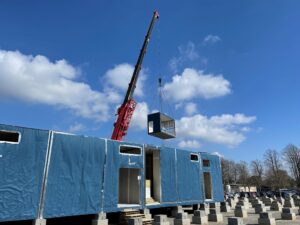
The Benefits of Modular Facilities
Modular, off-site construction offers several advantages. Within a matter of months it provides NHS trusts with new buildings and facilities which are flexible enough be designed for bespoke healthcare needs.
The number one benefit of modular facilities is the ability to deploy them rapidly. The prefabricated nature of modular buildings enables quick assembly and ease of construction. Unlike conventional construction, which can take years, modular facilities can be ready for use in a fraction of the time. This accelerated process ensures that additional medical capacity can be introduced swiftly, addressing the immediate need to reduce waiting times where there is limited healthcare infrastructure.
Another crucial benefit is the cost effectiveness of modular. The NHS is under financial constraints and budgets simply aren’t available for large-scale healthcare infrastructure overhauls, including the fact that buildings under renovation or construction will be out of action for long periods of time. Building traditional healthcare facilities is also costly, and lengthy construction times can further escalate expenses. In contrast, modular facilities are more cost-effective due to their streamlined manufacturing process and shorter construction timelines. These cost savings can be redirected towards improving patient care and further reducing waiting times. 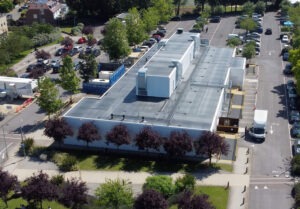
Modular facilities can also be tailored to specific healthcare needs, providing an opportunity to design spaces that optimise patient flow and enhance efficiency. Whether it's additional treatment rooms, diagnostic centres, or outpatient clinics, modular structures can be easily customised to meet the evolving demands of NHS hospitals and health facilities.
The potential to repurpose modular buildings and their portability enable healthcare providers to adapt to changing healthcare demands. Modular facilities can be deployed to regions experiencing a surge in demand or areas with limited medical infrastructure, helping to distribute patient loads more evenly and reduce waiting times in high-pressure regions.
Furthermore, modular facilities can seamlessly integrate with existing healthcare infrastructure, ensuring continuity of patient care. They can be connected to hospitals or healthcare centres, allowing for efficient patient referrals, and coordinated care management.
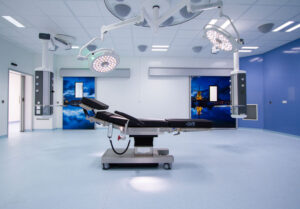 Finally, modular construction often incorporates eco-friendly materials and energy-efficient systems, aligning with the NHS's commitment to sustainability and, simultaneously, providing efficient and accessible services.
Finally, modular construction often incorporates eco-friendly materials and energy-efficient systems, aligning with the NHS's commitment to sustainability and, simultaneously, providing efficient and accessible services.
In response to the COVID-19 outbreak, Vanguard Healthcare Solutions made available some additional modular facilities to support healthcare providers in Europe with capacity planning and the need for increased resilience as a result of the ongoing crisis. Read more here: Modular solutions provide additional COVID-19 capacity - Vanguard Healthcare Solutions
Get in touch with us at [email protected] to book an appointment to discuss how Vanguard’s modular solutions can help you.
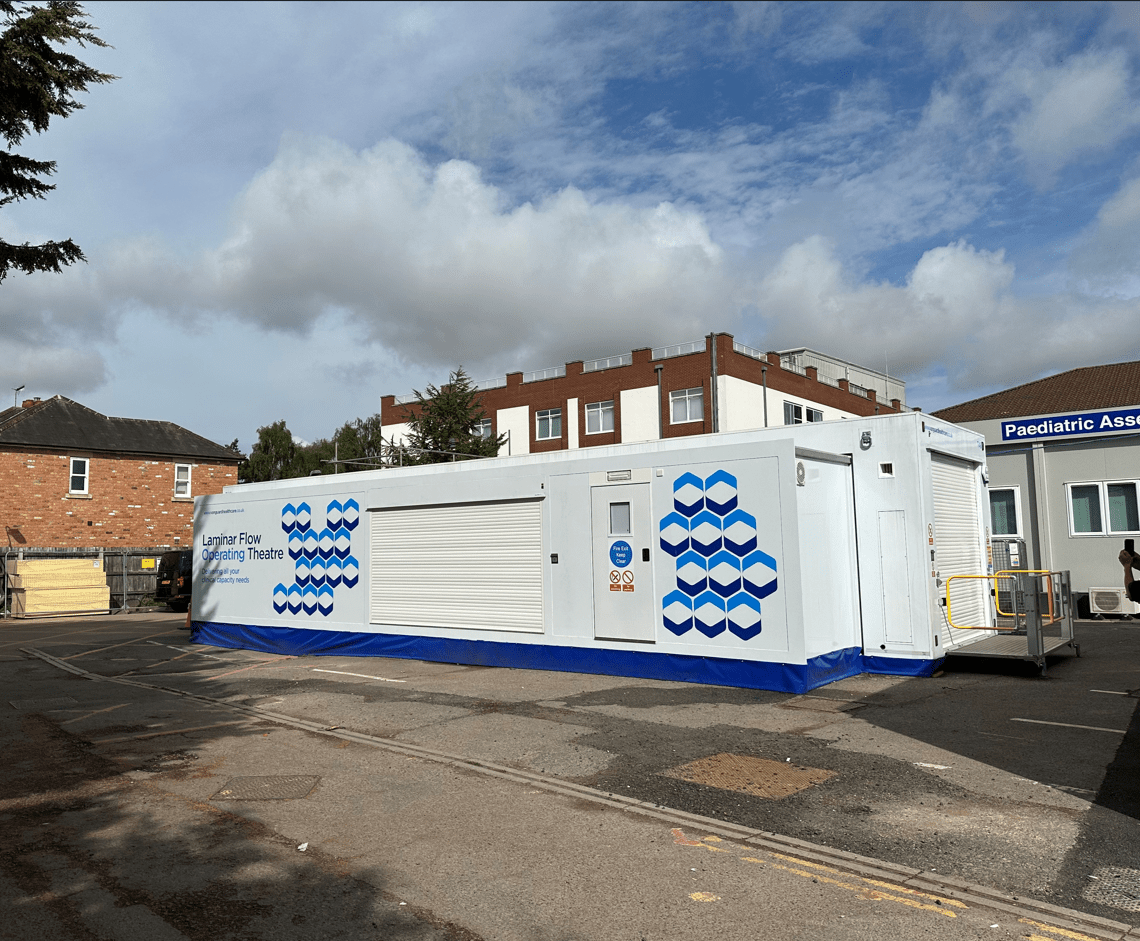

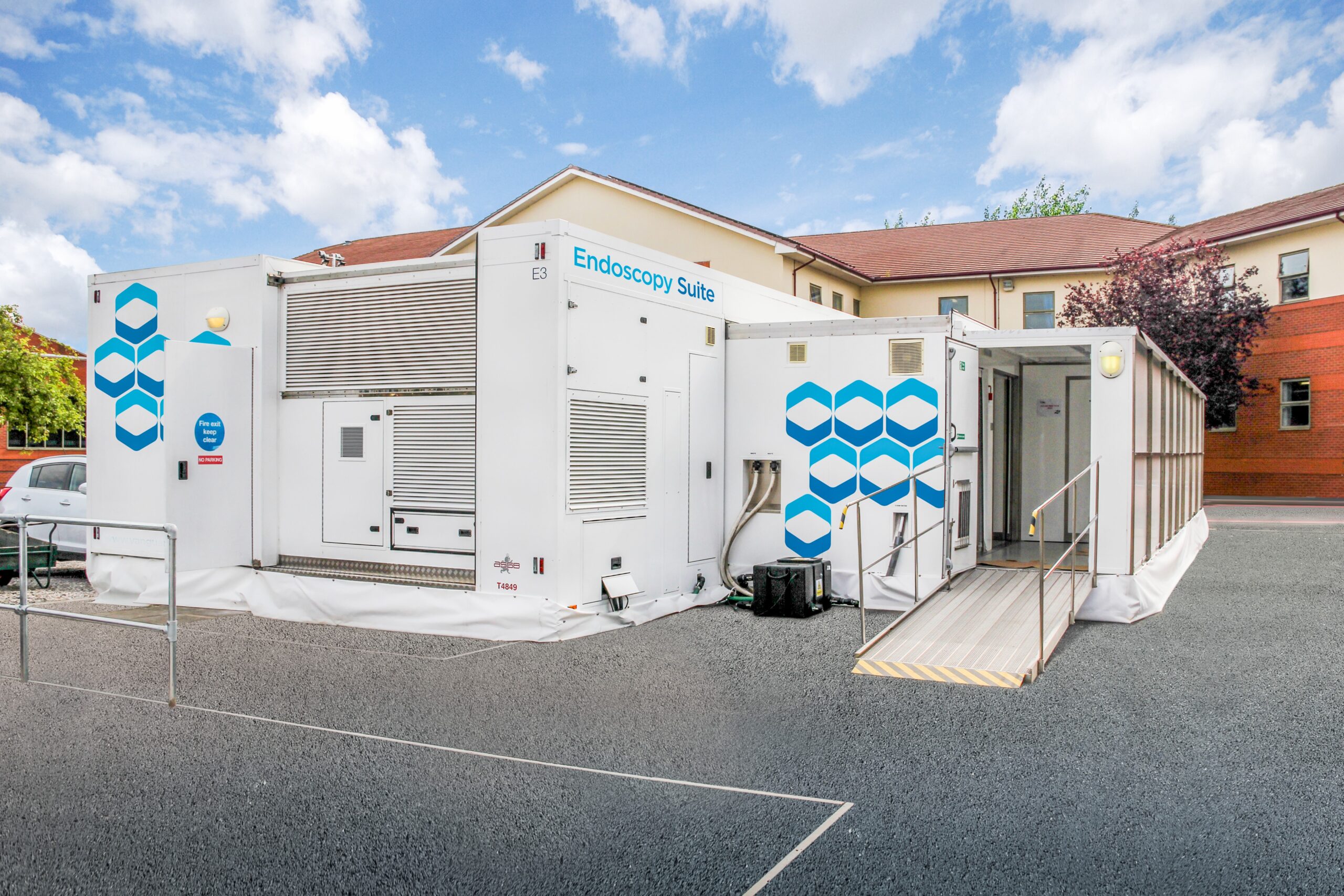
Vanguard Healthcare Solutions
Unit 1144 Regent Court, The Square, Gloucester Business Park, Gloucester, GL3 4AD

We have a different site (www.q-bital.com) which better suits your location